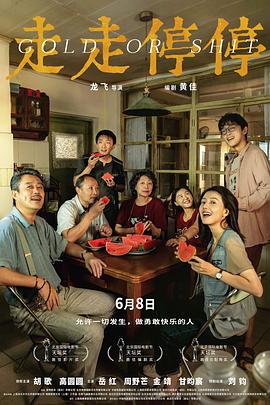剧情:
Somewhere in the remote region, the war ends. In the midst of ruined cities and houses in the streets, in rural hamlets, everywhere where people still live, are children who have lost their homes and parents. Abandoned, hungry, and in rags, defenseless and humiliated, they wander through the world. Hunger drives them. Little streams of orphans merge into a river which rushes forward and submerges everything in its path. The children do not know any feeling; they know only the world of their enemies. They fight, steal, struggle for a mouthful of food, and violence is merely a means to get it. A gang led by Cahoun finds a refuge in an abandoned castle and encounters an old composer who has voluntarily retired into solitude from a world of hatred, treason, and crime. How can they find a common ground, how can they become mutual friends The castle becomes their hiding place but possibly it will also be their first home which they may organize and must defend. But even for this, the price will be very high. To this simple story, the journalist, writer, poet, scriptwriter, movie director, and film theoretician Béla Balázs applied many years of experience. He and the director Géza Radványi created a work which opened a new postwar chapter in Hungarian film. Surprisingly, this film has not lost any of its impact over the years, especially on a profound philosophical level. That is to say, it is not merely a movie about war; it is not important in what location and in what period of time it takes place. It is a story outside of time about the joyless fate of children who pay dearly for the cruel war games of adults. At the time it was premiered, the movie was enthusiastically received by the critics. The main roles were taken by streetwise boys of a children's group who created their roles improvisationally in close contact with a few professional actors, and in the children's acting their own fresh experience of war's turmoil appears to be reflected. At the same time, their performance fits admirably into the mosaic of a very complex movie language. Balázs's influence revealed itself, above all, in the introductory sequences an air raid on an amusement park, seen in a montage of dramatic situations evoking the last spasms of war, where, undoubtedly, we discern the influence of classical Soviet cinematography. Shooting, the boy's escape, the locomotive's wheels, the shadows of soldiers with submachine guns, the sound of a whistle—the images are linked together in abrupt sequences in which varying shots and expressive sharp sounds are emphasized. A perfectly planned screenplay avoided all elements of sentimentality, time-worn stereotypes of wronged children, romanticism and cheap simplification. The authors succeeded in bridging the perilous dramatic abyss of the metamorphosis of a children's community. Their telling of the story (the scene of pillaging, the assault on the castle, etc) independently introduced some neorealist elements which, at that time, were being propagated in Italy by De Sica, Rossellini, and other film artists. The rebukes of contemporary critics, who called attention to formalism for its own sake have been forgotten. The masterly art of cameraman Barnabás Hegyi gives vitality to the poetic images. His angle shots of the children, his composition of scenes in the castle interior, are a living document of the times, and underline the atmosphere and the characters of the protagonists. The success of the picture was also enhanced by the musical art of composer Dénes Buday who, in tense situations, inserted the theme of the Marseilaise into the movie's structure, as a motive of community unification, as an expression of friendship and the possibility of understanding. Valahol Europaban is the first significant postwar Hungarian film. It originated in a relaxed atmosphere, replete with joy and euphoria, and it includes these elements in order to demonstrate the strength of humanism, tolerance, and friendship. It represents a general condemnation of war anywhere in the world, in any form.
收起
【已完结】
官网同步更新,若有延迟请稍作休息再看看
官网同步更新,若有延迟请稍作休息再看看
【已完结】
官网同步更新,若有延迟请稍作休息再看看
官网同步更新,若有延迟请稍作休息再看看
相关影片
2024
剧情片
墨西哥
更新至高清
2024
剧情片
美国
更新至高清
2025
剧情片
瑞典 / 比利时 / 丹麦 / 波黑
讲述特蕾莎修女一生中关键的7天,即她决定离开加尔各答的洛雷托·恩塔利修道院,创立自己的修道会的时期。
更新至高清
2009
剧情片
中国大陆
更新20240819期
2025
剧情片
意大利
托尼·塞尔维洛 安娜·费泽蒂 奥兰多·辛克 马西莫·文图列洛 米尔维亚·马里利亚诺 朱塞佩·盖亚尼 乔瓦娜·圭达 阿莱西亚·朱利安尼 罗伯托·齐贝蒂 Vasco Mirandola Linda Messerklinger Rufin Doh Zeyenouin Simone Colombari Alexandra Gottschlich Lucio Zagaria Francesco Martino Tommaso Amadio Guè
马里亚诺·德·桑蒂斯是意大利共和国总统。此人与现实中的任何总统均无关联,完全是作者虚构的人物。他丧偶多年,且信奉天主教,有一个女儿名叫多罗泰亚——和他一样,女儿也是一名法律学者。 任期即将结束之际,在波澜不惊的日常中,两项最后的职责摆在了他面前:就两份敏感的总统特赦申请做出决定。这些抉择构成了真正的道德困境,并且以看似无法理清的方式,与他的私人生活纠缠在了一起。 在疑虑的驱使下,他必须做出抉择。而这位杰出的意大利总统,怀着强烈的责任感,必将履行这份职责。
更新至高清
2025
剧情片
美国
更新至高清
2026
剧情片
中国大陆
更新至高清
2018
剧情片
日本
更新至高清
2026
剧情片
中国大陆
更新至高清
2026
剧情片
中国大陆
更新至高清
2025
剧情片
美国
更新至TC
2024
剧情片
法国
Jean Monier is a disillusioned lawyer, appointed to defend Nicolas Milik, a man accused of murdering his wife. While everything points to his guilt, Monier takes up the case, convinced of his innocence. As his investigations kept him back to the night of
更新至高清
2024
剧情片
加拿大
A committed couple finds their life slipping away, not because they’ve done anything in particular, but because their history is unwriting itself. Sort of.
更新至高清
2025
剧情片
中国大陆
更新至高清
正在热播
更多
2022
国产动漫
大陆
独家推荐
更新至第140集
2024
剧情片
中国大陆
独家推荐
HD
2024
国产剧
中国大陆,新加坡
独家推荐
全40集 彩蛋 花絮




















